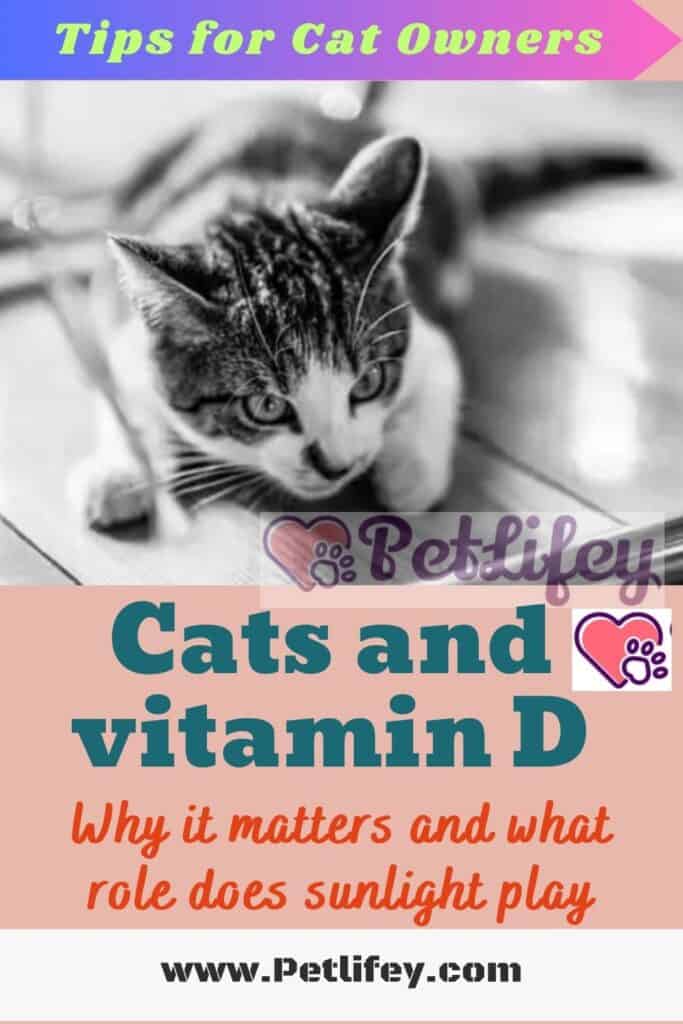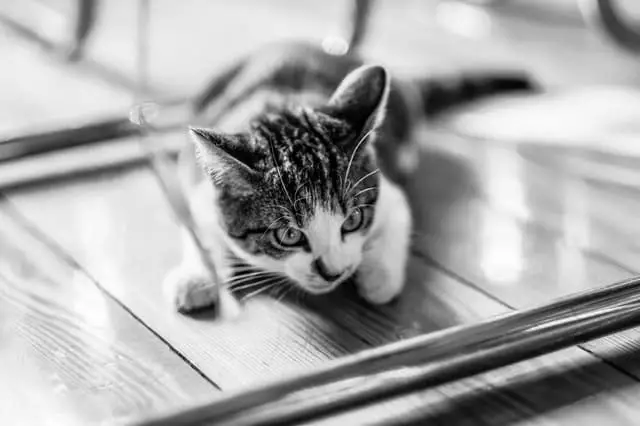
Little is known about the importance of vitamin D for cats, just as not many know what the true role of sunlight is in cat health.
Sunlight is a source of energy for any form of life on our planet, including pets: in particular, in this article we deepen the importance of sunlight for cats and what its role is with respect to vitamin D for cats our feline friends.
Cats love to be in the sun: it is not uncommon to see them lying comfortably and taking a nap in the warmth of sunlight, which is essential for regulating their basal metabolism and maintaining the right level of body temperature. But what does sunlight have to do with the vitamin D synthesis process in cats?
We know that for humans, sunlight is essential: in its absence, we would not be able to synthesize vitamin D which is essential for the health of our organism. It therefore appears natural, for those who choose to adopt a cat but live in an apartment, to ask themselves if the limited possibility of curling up in the sun will have a negative effect on the general health of the cat.
In this article we will find out how important vitamin D is for cats and whether or not they need sunlight to assimilate it.
Vitamin D in cat health: how important is it?
Just like any other animal, cats also need the right amount of vitamin D to stay healthy: whatever the cat’s age, there will always be a need for this substance which plays a fundamental role in the cat’s body.
Vitamin D, in fact, is necessary for:
1. Development of bones and skeleton in general,
2. Metabolism of calcium and phosphorus,
3. Absorption of calcium by the intestines and kidneys,
4. Health of the feline immune system,
5. Control in the nerves and muscles.
If for humans the sun plays a fundamental role in the synthesis of vitamin D, is this also true for cats? Let’s see what scientific research says about it.
Cats and vitamin D: do they need the sun too?
Cats can also synthesize part of the vitamin D they need through exposure to sunlight, however not in sufficient quantity: this is because the cat’s skin does not contain enough 7-dehydrocholesterol, the precursor necessary for the synthesis of the vitamin in question.
Cats love to rest in the sun, but it’s not to synthesize vitamin D that they do – it wouldn’t be enough for their health anyway.Eexposure of cats to ultraviolet rays does not cause any significant increase in vitamin D in cats. This is why it is necessary to act on the feeding of the cat, to avoid dangerous nutritional deficiencies.
But what are the best sources of vitamin D for cats? This substance, essential for keeping the bones and muscles of the cat in perfect shape, becomes indispensable in the prevention of dangerous diseases such as cancer in cats, against infections and for bone diseases.
To ensure our domestic feline the right dose of vitamin D in the blood we must not forget to provide it with a healthy and varied diet: among the basic foods, we point out for example fish oil, but also cheeses and eggs. On the latter aspect, you may be interested in our in-depth analysis on the topic of eggs in the cat’s diet.
Finally, we must be very careful not to overdo the doses: an excess of vitamin D could even cause dangerous poisoning in the cat. If you have chosen to feed your cat with the classic cat foods on the market, make sure you choose a good quality one and you will already have the certainty that it will have the dose of vitamin D it needs.
Vitamin D poisoning in cats

As mentioned, an excess of vitamin D could even cause a dangerous poisoning in our feline friend: if the cat ingests a toxic dose of vitamin D it will be impossible for him to maintain the balance in the calcium doses in the body, with dangerous consequences on the heart. muscles, nerves, intestines and kidneys which can also lead to the death of the animal.
Among the most frequent causes of vitamin D poisoning in cats we find the accidental ingestion of human drugs or rat poison products, but also a poorly balanced diet in cats fed with a home diet and with an excess of some foods including fatty fish, eggs, milk and liver.
The most common symptoms of vitamin D poisoning are depression, lack of appetite, vomiting, constipation, very thirst, increased urination. In severe cases, dark stools and breathing difficulties may be noted: signs of intestinal bleeding and lung damage. Finally, the heart rate of the poisoned cat tends to decrease dangerously.
These signs appear between 8 and 48 hours after poisoning: as soon as you notice them, immediately take your cat to the vet. If your cat is treated within hours of ingestion, there is a greater chance that he will be able to overcome vitamin D poisoning without dangerous consequences.






